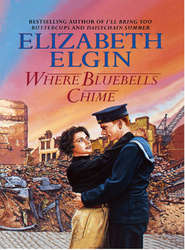По всем вопросам обращайтесь на: info@litportal.ru
(©) 2003-2024.
✖
The Linden Walk
Настройки чтения
Размер шрифта
Высота строк
Поля
‘Half-Russian, and as English as they come. I am fond of Tatiana, was touched when she asked me to give her away. You’ll be coming with me to the wedding?’
‘I think not, Igor. I dislike English trains and it is even colder in the north than it is here. And I have nothing to wear.’
‘You have your sable, Mama. December is a month for furs, and yours will be the finest in the North Riding! Now – where will you stay? At Denniston with Tatiana, or at Rowangarth? Julia Sutton would be glad to have us. Or shall you, perhaps, stay with Anna and Ewart?’
‘Why did I sell the tiara?’ Olga Petrovska demanded petulantly.
‘Why, Mama? We needed the money. You sold it after Anna had worn it at her wedding to Elliot Sutton. You got a good price for it.’
‘Yes. The money helped. If only we had been able to get more out of Russia, we wouldn’t be beggars, now.’
‘My father and Vassily were killed, trying to get more out of Russia. Be content, Mama, that you got out with your life. And the tiara did not bring happiness to Anna. I think it is best that Tatiana cannot wear it.’
‘Of course she couldn’t wear it, even had I not been forced to part with it! Tatiana will not be wearing white. She is determined to be married in ordinary clothes. I doubt she will carry flowers, even. But it will matter not much, I think. She is marrying out of her faith.’
‘Tatiana will be married by her uncle, an Anglican priest. He is a good man and will speak the words with love. So will I ring my niece? Will I tell her that her grandmother looks forward to her wedding? It would seem ungracious if you were not there. She will want your blessing.’
‘Since you seem determined to put an old woman to such trouble – yes, ring Tatiana. Tell her her grandmother will stay at Denniston House, and will remain there, over Christmas. It will make a change, I suppose, from cold, bombed London.’
‘London is a better place to be in than Leningrad – than St Petersburg, Mama. Think of the desolation there. Remember that you said you were proud of the way the Communists fought the Nazi armies for Mother Russia.’
‘I remember. What is left of my St Petersburg, the people there deserve.’
And why did she always think of her house beside the River Neva when things, here in exile, got bad; when there was no coal to burn in the grate, when rations ran out? In her heart she knew she was being foolish, that almost certainly her beloved house had been blasted into ruins in the long, bitter siege or, at the very best, was now in a sad and run-down state with a family living in each room, using Olga Petrovska’s most modern water closets or doing their washing in her baths, with the shining taps turned green with neglect. Best she forget about the days when Peter, her husband, and elder son Vassily had been alive; when her children were young and they spent their summers at the farm at Peterhof, not many miles away from the Tzar, God rest him, who spent summers there, too.
They had run through the fields, her children, like barefoot peasants; had fished in the stream and helped in the hay meadows. Life had been good then, had she the sense to know it. But happiness is always ahead, or behind you. She had never once thought, ‘Today, I am the most fortunate, the most contented woman in all the Russias,’ and more was the pity. She pulled her shawl more closely around her shoulders then closed her eyes, to shut out the present.
And her son sensed her withdrawal, and said nothing, because these days, the only time she smiled was when she thought about the time before the revolution when life had been tranquil. So he, too, closed his eyes, pushed his feet closer to the small fire in the small grate, and thought not of the house by the River Neva, but of his niece and her wedding and how pleasant it would be to see her happiness. Had he had a daughter of his own, Igor pondered, she would have been exactly like Tatiana; would, if that daughter were very lucky, be blessed with his niece’s beauty, and with not a little of her independence and courage.
But he had not married, for who would want a penniless White Russian even though he was, if everyone claimed his own, Count Igor Petrovsky. And which woman, with one iota of sense, would have taken him when he came burdened with an autocratic mother who was only happy when she could escape to her beloved house beside the River Neva?
He sighed, and thought instead of his niece, the amazingly well-balanced outcome of a disastrous marriage who was to marry, soon, in the little hundreds-of-years-old chapel.
And there was a smile on his lips, too.
‘You can’t mean it, Keth Purvis. Take me all the way to West Welby in that car of yours?’
‘Of course I mean it. I always said I would take you back there one day, to see Dad’s grave.’
‘But how will you manage it, boy, when petrol is rationed and, anyway, when are you to get time off school?’
‘At Christmas – when driving all the way to Hampshire wouldn’t be a lot of fun, and at Easter, when I had thought to go. And don’t look so dumbfounded. You know you’d like it.’
‘And does Daisy agree with all this, then?’
‘She does. You and I were to go, she insisted, and you know what Daisy is like when she sets her mind on anything. And as for petrol – well, Creesby Motors threw in a full tank of it when we bought the car and don’t ask me how they were able to do it, because I don’t know. All I do know is that there was five months’ petrol rations in that tank, so I’m hanging on to my coupons –’
‘Your legitimate, above-board coupons, Keth?’
‘Whatever. So I’m well in hand, petrol-wise, and should be able to get you there and back when the better weather comes.’
‘And I appreciate it, son, but will you tell me one thing? Will you tell me how much that motor cost? And this is your mother, asking.’
‘If you must know, it cost two hundred and seventy pounds.’
His cheeks flushed red, because he knew who had paid for it, and his mother, mistaking his shame for anger, said she was sorry, that it wasn’t any of her business; that she had only asked because she didn’t want to think of him getting into debt to pay for it.
‘It’s all right, Mam. It swallowed up my Army gratuity and all of my savings, but I managed it.’
He was ashamed of the blatant lies that came too easily, but his mother had never been told about Daisy’s money. The fewer who knew, the better, Daisy had always insisted. Even Lyn thought the fortune her cabin mate had inherited on that twenty-first birthday was a mere thousand pounds, and only told because it had been necessary to find an explanation for Daisy’s visit to the solicitor at Winchester. What that inheritance had grown into over the years until Daisy came of age was obscene, almost. His fiancée had become richer than Drew, truth known. Amazing, really, how someone so flouncy and quick-tempered as Daisy could have kept all that money so secret.
‘Hullo, son,’ Polly Purvis smiled. ‘You’ve come back to earth, then? Where were you?’
‘As a matter of fact, I was thinking about West Welby.’ His cheeks flushed red again because he was not a good liar. ‘Was thinking, as a matter of fact, that you might be a bit disappointed when we go to see Beck Lane. Daisy and I found it a bit run-down and neglected. No one living in either Keeper’s or Willow End.’
‘It wouldn’t matter, Keth. I couldn’t go all that way and not walk down Beck Lane, now could I? And I’d want to take a look at Morgan and Beth.’
‘Of course you would.’ Keth took his mother’s face in his hands and gently kissed her forehead. ‘And maybe, if we are lucky, the bluebells will be out in the beechwood and if the piggy-bank runs to it, I’d like us to stay the night somewhere; make a real outing of it. And at least there are films for cameras in the shops again. We can take lots of snaps. But I want you to promise me you won’t get too upset, Mam.’
‘Just a little sad for my Dickon, allow me that. But I’ll count my blessings. I’ve always known that you take what life throws at you and that nothing lasts, neither good times, nor bad. And I shall look forward to going to Hampshire and staying overnight. Sure you can afford it, son?’
‘Sure – or I wouldn’t be asking you.’ He smiled, loving her very much, knowing he had lied again, that it was Daisy who insisted on paying for the trip. ‘We’ll have a look at the calendar – make sure it doesn’t clash with the wedding.’
‘Aah. The wedding.’ Polly smiled then closed her eyes and thought about the dress she had worn to Keth’s wedding and the fine hat Daisy had bought her in the swankiest shop in Harrogate. Polly Purvis had plenty of good times for the counting. Oh, my word, yes!
‘So tell me, Keth?’ Daisy slipped her arm into his, snuggling close, knowing she must tread carefully. ‘About France, I mean – if you haven’t changed your mind, that is?’
‘You’ve got to know, darling, then maybe when you do, you’ll understand why I’ve got to go back to Clissy.’
‘To France?’
‘Yes. To Clissy-sur-Mer when I became Gaston Martin and had a codename Hibou.’
‘So I was right all along,’ she whispered. ‘It was cloak-and-dagger stuff! You were in terrible danger, and I never knew.’
‘Not dangerous for me. I wasn’t the one who took risks, not real risks. I was taken there by submarine, rowed ashore then met and handed over to someone who told me her name was Natasha. I remember thinking at the time that it had come to something when a child was the best they could manage. I didn’t think that being out after curfew was a stupid – and dangerous – thing to do. She took me to Madame Piccard’s house. That house was all I saw of Clissy. Never went beyond the back gate; never saw the village.’
‘In what they called a safe house, were you?’
‘That’s it. I took the identity of a French soldier Gaston Martin, officially posted missing at Dunkirk; unofficially taken off the beaches with our lot and was then living in Ireland. He was deaf – caused by explosions. Lucky for me, that, as long as I remembered when a stranger came along, that I couldn’t hear a word they said.’
‘And did they? Come along, I mean.’
‘Once. One of the occupying German soldiers and the local gendarme with him. Routine check. Looking back, knowing what I know now, I think the gendarme was in on it – or at least sympathetic to anyone he suspected to be in the Resistance. I had supposedly gone to Clara Piccard’s house to dig her garden. I had a forged work permit with me and she made no bones about her hired help. Luckily, I knew how to dig.’
‘But Natasha – where did she come into it?’
‘Natasha – her real name Hannah Kominski – was adopted. Her parents were Russian refugees who lived in Paris, next door to Madame Piccard, who worked as a nurse there, before she retired to Clissysur-Mer. The Kominskis – they were Jewish – realized it was only a matter of time before they were arrested, so they made sure Hannah was safe. Madame Piccard had retired to Clissy by then. Her husband was killed in the Great War, so she’d gone back to nursing. They sent Hannah, with forged papers, to her for safe keeping. There were a lot of good forgers around in our war, Daisy. Hannah became Elise Josef and worked as a courier, sometimes, for the Resistance. She took the codename Natasha, because it was all she knew about her birth mother.’











